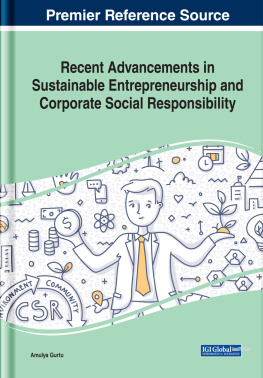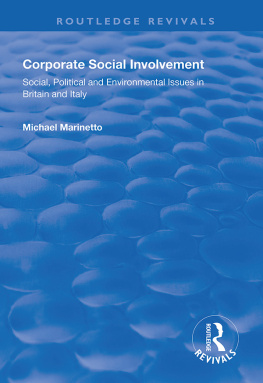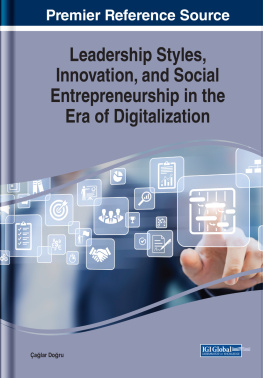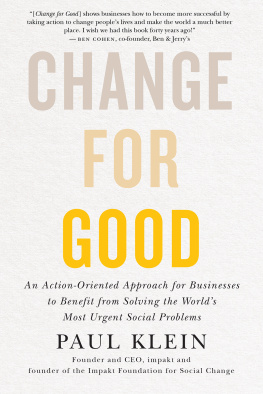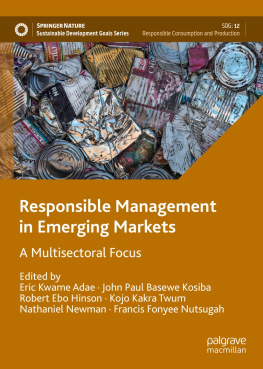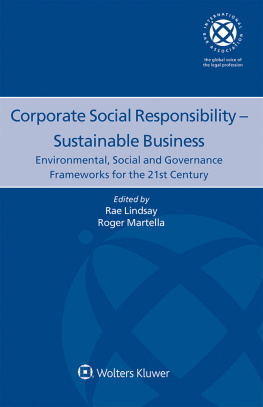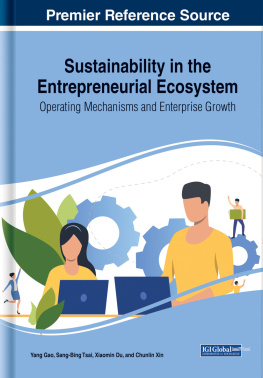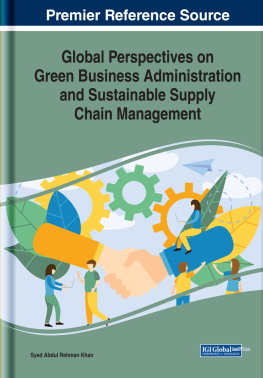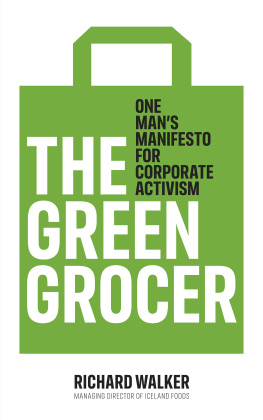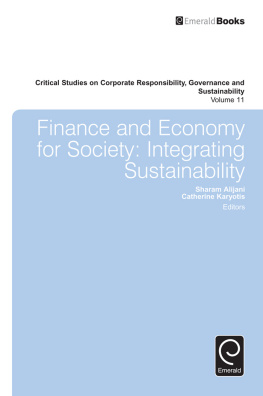Chapter 1
Corporate Social Responsibility and Its Application to Social and Business Systems
- Emad Rahim
Bellevue University, USA
ABSTRACT
This chapter provides an overview of contemporary aspects of change management and social responsibility and social and business systems. The topic of sustainability describes the foundation of the subject, as well as theory, concepts, and principles. The author provides various case examples and perspectives on the triple bottom line, scale-free networks, social and business systems, and delivers to readers a blueprint for developing a change management strategy for fostering a socially responsible environment.
SUSTAINABILITY AND STAKEHOLDERS
Once perceived as a matter of doing minimum harm, sustainability is now an issue of the greater good that affects individual stakeholders and Fortune 500 companies alike (Burke & Cooper, p.191). In the face of scarce resources, climate change, and population explosion, businesses, governments, and organizations are all realizing the interconnectedness of the various systems in which they operate and the impact those systems have on global, environmental sustainability. As a business professional, one makes decisions on behalf of his or her organization that will directly impact these critical issues.
The discussion question (DQ) that follows centers around understanding an organizations sustainable options within the context of the ever-changing business or economic environment. As a result, sustainability offers a variety of strategies for transforming or improving an organization in order to cope with and potentially preemptively remedy the socio-economic and political challenges taking place in the ever-evolving business environment.
Globalization is key contributor to a rapidly changing world as a result of international economic interdependence. Such interdependence, to some extent, has resulted in for-better or for-worse situations in various regions of the world. In this context, environmental sustainability is imperative because, for example, global warming or environmental challenges are adversely affecting the ecosystems the world over; as well as resource availability and procurement for individuals of multiple socioeconomic statuses; and various tiers of businesses alike, from mega-corporations to independent small businesses.
A number of definitions and concepts are associated with sustainability. But the core concept of sustainability is that an organization will take actions that will enable its long-term survival socially, environmentally, and financially (Epstein, 2008). In addition, sustainability is also a key to making the environment a better place after pollution and other degradations have taken their toll on it. Further, King (2008) pointed out that the economics of sustainability must find a way to raise the standards of living of a large number while reducing the negative environmental consequences of economic activity, with priority for the future, so that future generations have at least the same potential economic opportunities to achieve the welfare of the current generation (pp. 28-29).
Sustainability has been defined as economic development that meets the needs of the present generation without compromising the ability of future generations to meet their own needs (Brundtland 1987). In the early stages, sustainability was thought to be an environmental discourse that sought to preserve as much biodiversity and unspoiled land as possible; however, as Quinn and Dalton (2009) noted,... sustainability requires the full integration of social, economic, and environmental issues into the vision, values, and operation of the organization. From what was originally considered a one-dimensional construct (an environmental discourse), sustainability has become the centerpiece of organizational long-term strategy.
The organization at which I am currently employed has fully embraced sustainability as a means to more efficiently deploy its human and other resources, and, by engaging in and sponsoring certain civic/social activities, it is establishing itself as a caring, responsible corporate citizen within the communities that the organization has a presence. One of the more significant changes is evident in hiring practices: Today, prospective employees are often asked to give examples of their involvement in civic /social activities as a means of attracting individuals who are open to making a positive contribution to society.
According to Epstein (2008), ethics, governance, transparency, business relationships, financial return, community involvement/economic development, value of products and services, employment practices, and protection of the environment are the nine principles of sustainability performance (p. 37). My organization has done a good job in terms of building positive business relationships and adding resources to help sustain performance and maintain viability. I do, however, feel that the level of social responsibility can be improved via more promotion of employment practices in the area of diversity. Employment practices are when the company engages in human-resource management practices that promote personal and professional employee development, diversity, and empowerment (Epstein, 2008, p. 37).
Sustainability is the ability of an organization to act as a system and align it with nature. This will allow it to flourish and successfully survive over time. At the same time, it should not compromise the needs of individuals in the future. Based on these principles, my organizations rating would be fairly high. They consider all of their stakeholders needs, desires, goals, and missions preceding the launch of new products as well as when acquiring new organizations or potential corporate partnerships. An equal contribution is received from customers, employees, and the organizations managers/leaders. They organize community events that give back, including tree-planting days and building houses for the less fortunate, among numerous other civic and social engagements.
Sustainability is an all-in-one concept that is limitless to all situations. Senge, Smith, Kruschwitz, Laur, and Schley (2008) described being sustainable as to live in the present in ways that do not jeopardize the future, stressing that a sustainable process is one that can be executed over and again without damaging effects on the environment. Therefore, Senge et al. added, Businesses can no longer expect to compete in the future without taking into account the larger problems that stand between now and then (p. 9).
As a volunteer of the Organization of Liberians in Minnesota (OLM), a not-for-profit membership and social services organization, I was fortunate to actively participate in Organization of Liberian in Minnesota (OLM) elections to usher in a new leadership team of honest, committed, dedicated Liberians to steer organizational affairs for two years, with OLM having existed for over three decades without any sustainability agenda. The organization has been stagnant since its inception due in part to perpetual conflict, lack of accountability, and greed. Its existence is imperative to ensure mutual benefit and symbiosis among other stakeholders, including state officials, in order to perpetuate and enrich the social and economic well-being of Liberians. To date, the OLM is a relatively stable organization because its stakeholders are collaboratively managing the resources and envisaging a sustainable OLM that is socially, environmentally, and financially responsible.
Furthermore, Senge et al. (2008) pointed out that the focus on sustainability is the environmentnot the business or the societybecause the environment is the biggest circle that encompasses the economy, industries, and individual businesses; therefore, the environment needs a stable and vibrant social order that will eventually have a positive effect on the economy, industries, businesses, and societies (pp. 102-103). Senge et al. suggested a rethinking of strategy needed to address sustainability issues of renewable energy in the form of wind farms, biofuels, solar panels, and other eco-friendly technologies that affect the environment as a system, and there must be a balance between sustainability and economic development (pp. 104-108). In this context, it is evident that the OLMs growth potential is minimal due to inadequate financial resources and persistent negative conflict.

